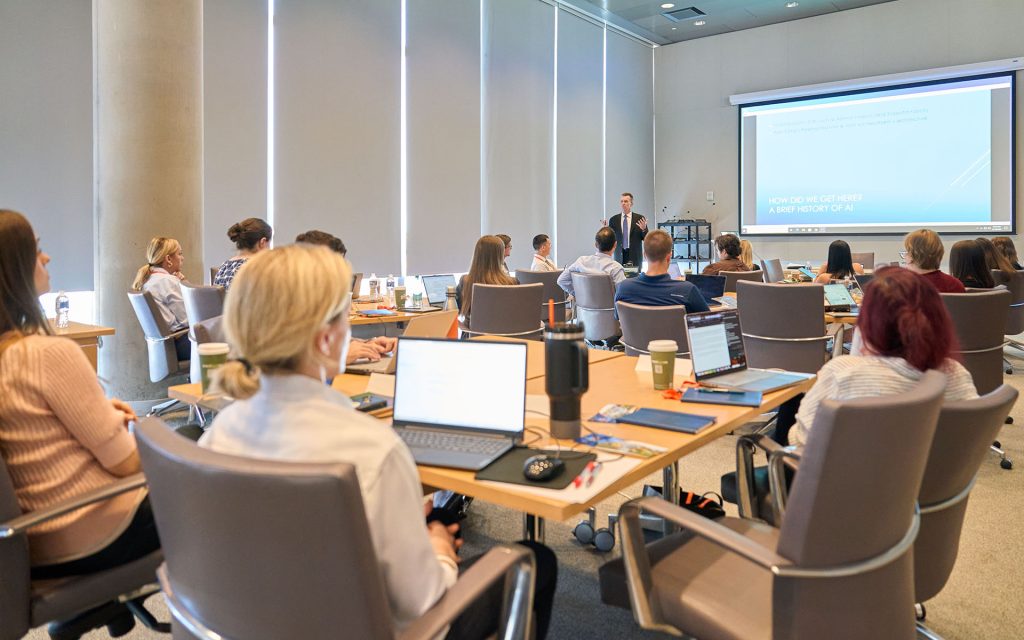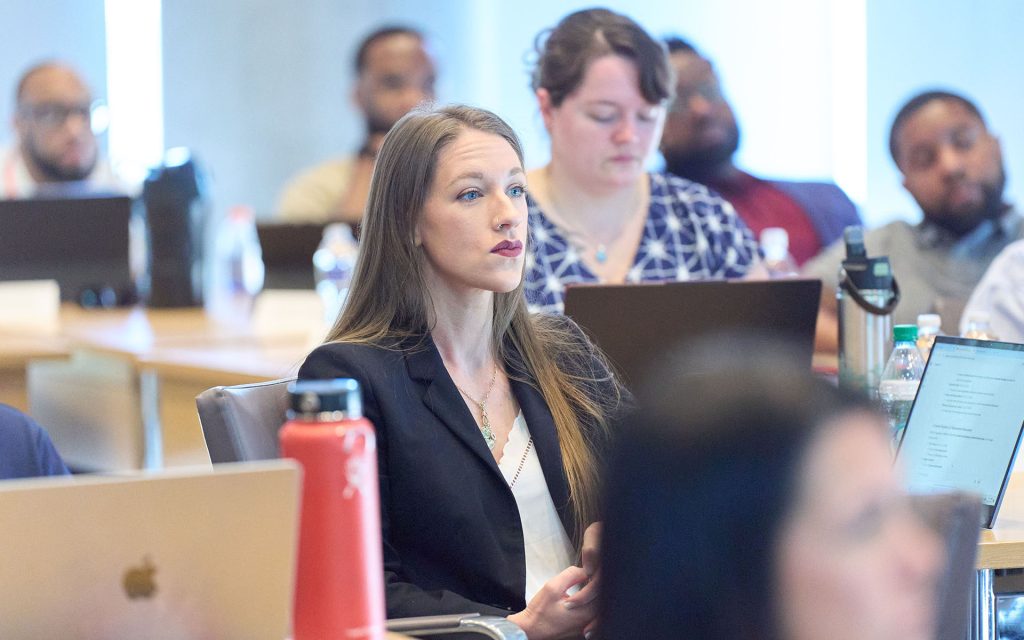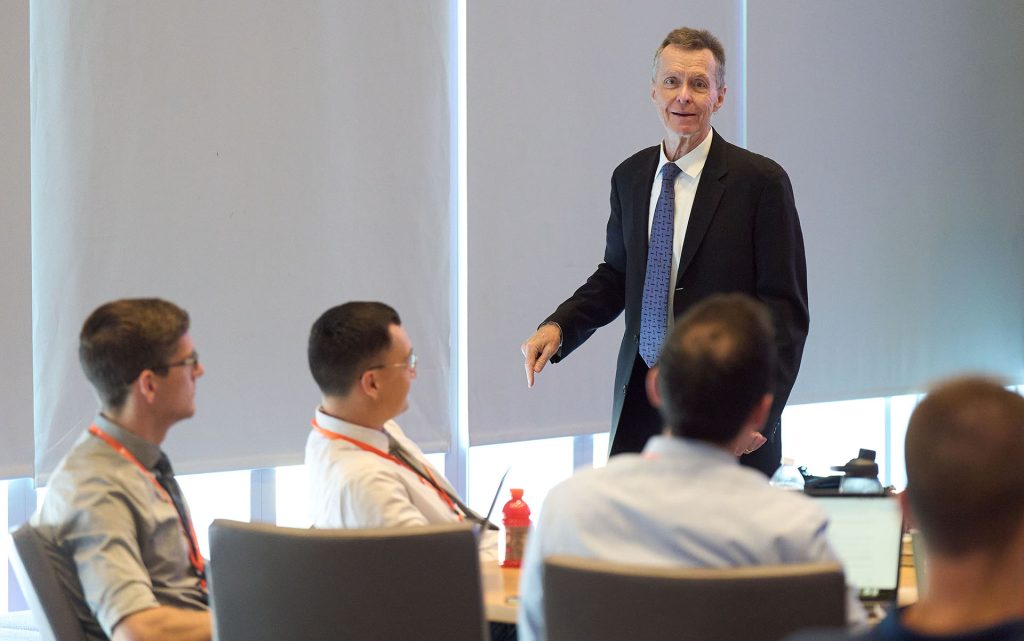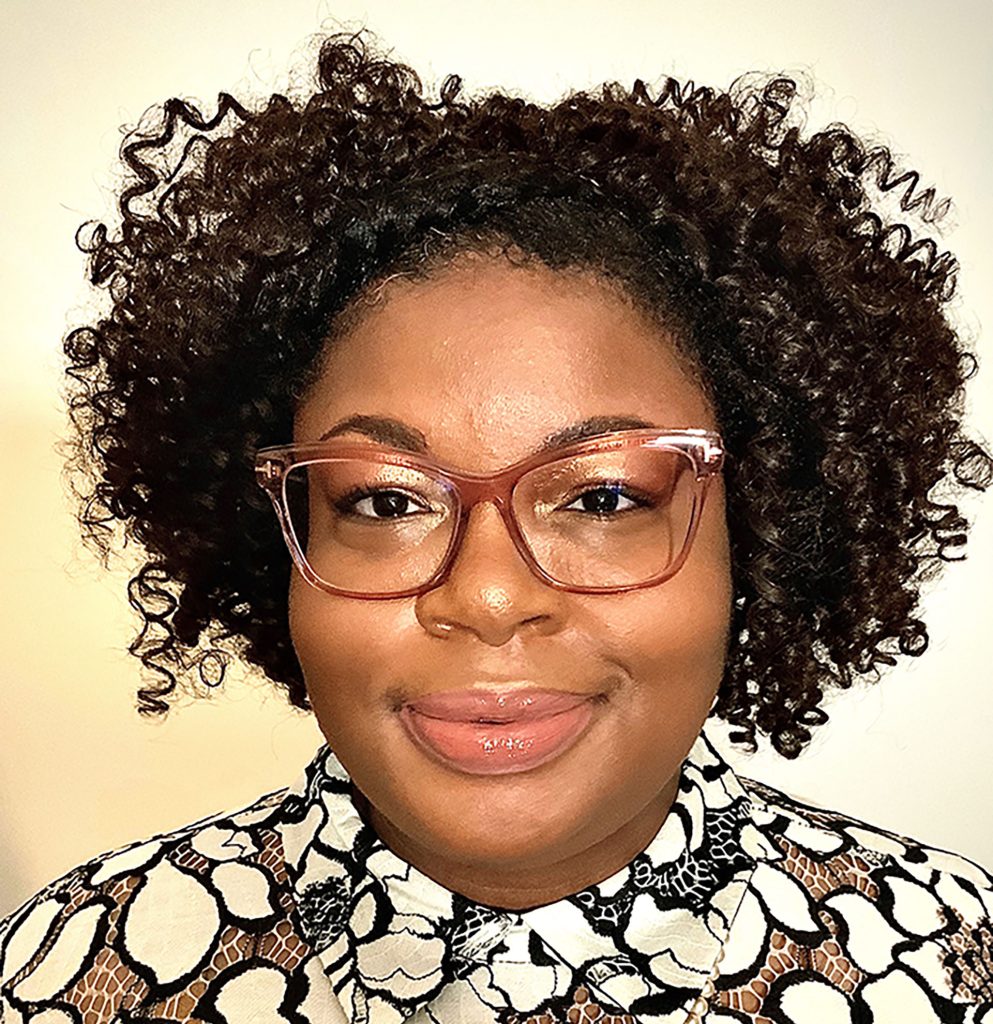Several College of Law deans and professors will be panelists, moderators, and discussants at the 2026 American Association of Law Schools Annual Meeting, Jan. 6 – 9 in New Orleans, LA.
Associate Dean of Students Kelly Curtis is the recipient of the Section on Academic Support Impact Award.
January 6
Professor of Law and Director, Disability Law and Policy Program Katherine Macfarlane
Section: Law Professors with Disabilities and Allies, Sponsored by Disability Law and Law and Mental Disability
Event: Managing Disability: From Academic Job Searching Through Tenure, Promotion, and Beyond
Event Role: Moderator
1:00 PM – 2:15 PM
Room: Grand Salon Section 3
This panel pairs section members who are new to the academy or to the section with experienced discussants who provide constructive feedback in an informal, supportive setting.
Professor of Law and Director, Disability Law and Policy Program Katherine Macfarlane
Section: Law Professors with Disabilities and Allies, Sponsored by Disability Law and Law and Mental Disability
Event: Section Works-in-Progress
Event Role: Moderator
2:35 PM – 3:50 PM
Room: Grand Salon Section 3
This discussion-style panel, titled “Managing Disability: From Academic Job Searching Through Tenure, Promotion, and Beyond,” brings together junior, mid-level, and senior law faculty to examine the unique challenges and opportunities individuals with disabilities face at all stages of their academic careers. Panelists will discuss topics such as navigating the academic job market; requesting and securing accommodations during the search, interview, and onboarding processes; and managing disability during the pre-tenured, application for promotion, and post-tenured time periods. Panelists will share their insights relating to building scholarly, teaching, and service networks; managing time and energy; and advocating for necessary support systems to ensure equal opportunity. The continued need for academic institutions to move beyond minimal ADA compliance—towards truly inclusive and equitable spaces for all faculty—will be a theme throughout.
Professor Mary Szto
Section: AALS Hot Topic Program
Event: Beyond NextGen
Event Role: Speaker
2:35 PM – 3:50 PM
Room: Canal
The bar exam is changing. Whether through the NCBE’s launch of the NextGen exam or the double-digit number of states considering the adoption of non-bar exam pathways to licensure, the world of attorney licensure is experiencing a significant reform period. This discussion brings together licensure experts from all corners of the country for a critical discussion about the need and effectiveness of that reform.
Professor of Law and Director, Disability Law and Policy Program Katherine Macfarlane
Section: Law, Medicine and Health Care
Event: Section Works-in-Progress
Event Role: Commentator
4:10 PM – 5:25 PM
Room: Grand Salon Section 16
Emerging Issues in Law, Medicine, and Health Care. In this panel, junior scholars, selected through a blind review process, will present works-in-progress and receive feedback from senior scholars and from the audience.
January 7
Professor of Law and Director, Disability Law and Policy Program Katherine Macfarlane
Section: Disability Law, Sponsored by Civil Rights and Education Law
Event: Section Program
Event Role: Speaker from a Call for Papers
2:35 PM – 3:50 PM
Room: Grand Salon Section 4
The many present attacks on the enforcement of civil and disability rights laws provide us with an opportunity to reflect on the history and impact of these statutes and to consider challenges and possibilities ahead. This panel will consider, among other questions, how the present dismantling of civil rights laws and agencies will impact the enforcement of statutes like the IDEA, Section 504, and Title VI of the Civil Rights Act of 1964 and the lives of the people those laws and agencies were created to protect.
January 8
Professor Mary Szto
Section: East Asian Law and Society, Sponsored by Comparative Law, Global Engagement, International Law, and Post Graduate Legal Education
Event: Section Pedagogy Programs
Event Role: Moderator
8:00 AM – 9:15 AM
Room: Grand Salon Section 4
Legal education in the United States is being hit with geopolitical challenges on many fronts: military conflicts around the globe, trade and tariffs disruption, domestic immigration restrictions and removals, an AI arms race, and rising authoritarianism, among others. U.S.-China relations and the broader East Asian region are a key part of these dynamics. This panel will explore how we are seeing these external challenges play out within our institutions and what we in legal academia can do to chart a positive path forward.
Assistant Dean for Advancement Melissa Cassidy
Section: Institutional Advancement
Event Role: Speaker
8:00 AM – 9:15 AM
Room: Churchill D
Join us for a dynamic session highlighting effective stewardship practices across our community. We’ll explore innovative approaches to stewarding small gifts, integrating AI, engaging academic leadership, and elevating donor experiences—from first-time supporters to major gift donors. Come ready to share, learn, and be inspired by creative solutions and real-world examples.
Professor of Law and Director, Disability Law and Policy Program Katherine Macfarlane
Section: Women in Legal Education, Sponsored by Disability Law, Employment Discrimination Law and Law Professors with Disabilities and Allies
Event: Special Programs
Event Role: Speaker from a Call for Papers
9:35 AM – 10:50 AM
Room: Grand Salon Section 3
Women remain underrepresented in influential positions in the legal academy. Visible and invisible status lines and distinctions within and outside of the academy have historically been defined by and through prisms of both discrimination and harassment. These status lines and distinctions bear directly upon career progression and one’s personal sense of safety. They create and, once brought to light, help to explain persistent inequality. This panel will explore harassment and bullying and the wide range of behaviors that constitute them, ranging from more readily recognizable forms of unwelcome conduct such as unwanted sexual advances, comments, gestures, and physical contact, and actions or statements that are obviously threatening, to more subtle or insidious forms of harassment and bullying, such as instances where a staff member’s helpfulness are mistakenly interpreted as interest or where a faculty member engages in alleged consensual sexual relationships with students. In so doing, the panel will employ the framework of intersectionality in analyzing varying forms and examples of harassment and bullying. The panel also may explore the role of institutional policies and practices in perpetuating harassment or bullying as well as the challenges and obstacles that status differences may create in terms of reporting and addressing these harms.
Dean Terence Lau L’98
Section: Pre-Law Education and Admission to Law School
Event: Section Programs
Event Role: Speaker
1:00 PM – 2:15 PM
Room: Grand Salon Section 13
The financial aid landscape is rapidly changing. This session will provide research and policy advice to help institutions and different constituents prepare for the new financial aid structure. Research and policy experts will share updates on recent developments and the effect on law school admissions, financial aid, development, and business offices. A law school dean and CFO will discuss institutional impacts and considerations. This session is designed to provide practical advice for navigating a new federal financial aid landscape.
Associate Dean for Faculty Research and Professor of Law Kristen Barnes
Section: International Law, Sponsored by International Human Rights, Law in the Americas, and National Security Law Session
Event: Section Pedagogy Programs
Event Role: Speaker
4:10 PM – 5:25 PM
Room: Churchill B1
January 9
Chancellor and Professor of Law Kent Syverud
Section: Advanced Workshop for Experienced Deans – Post-Decanal Opportunities: Seeking a Presidency of a College of University
Event: Resume
Event Role: Speaker
8:30 AM – 10:00 AM
Room: St. James Ballroom





